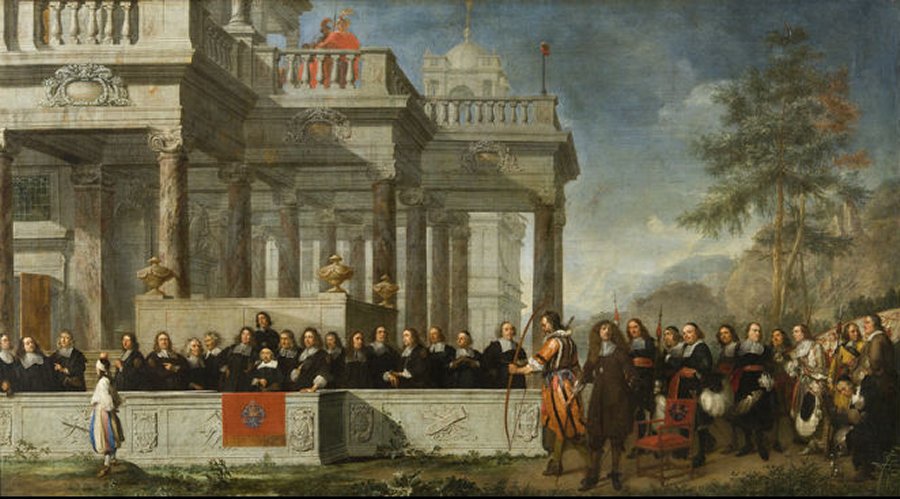Wilhelm Tell: Famous Legendary Crossbowman And Swiss Patriot – Symbol Of Freedom And Dignity
A. Sutherland - AncientPages.com - Wilhelm Tell was a Swiss national hero symbolizing the political and individual freedom struggle.
The scene depicting the hero shooting an apple off his son's head is probably known to everyone.
Monument of the Swiss Hero and Patriot with his son.
The father pulls the string, checks the wind, aims, and releases the bolt.
The arrow flew whistled only millimeters over his son's head and pierced a red autumn apple.
Tell breathes a sigh of relief but also knows he will never forgive the Austrians.
The event took place on November 18, 1307, according to a widespread urban legend mentioned in books dating back to the late fifteenth century. Tell, a famous mountaineer and crossbowman, was a resident of Bürglen in the canton of Uri, whose capital was in Altdorf, Switzerland.
The brave Swiss patriot Tell lived during the 13th and early 14th centuries when his country was not unified yet but was a conglomeration of small states under Habsburg feudal rule.
The Austrian governor and colonial overlord Hermann Gessler was an unpopular figure. He sought to humiliate the residents of Altdorf, so he ordered the erection of a tall pole in the town square, at the top of which would be displayed his hat - a symbol of the power of the Habsburg.
The Legend of Wilhelm Tell shown to the Antwerp Guild of St Sebastian. 1672; Credits: Philips A. Immenraet, W. Schubert van Ehrenberg, Charles E. Biset via Wikimedia Commons
Every Swiss man who entered the square would be obliged to pay allegiance to a cruel tyrant Gessler and the foreign imperial power he represented by bowing before his cap.
The famous crossbowman disobeyed Austrian authority; he refused to pay homage to a Habsburg liege and was forced to submit to the marksmanship test.
He had to shoot an apple from his son's head; the test was dangerous and humiliating, but Tell won it.
When the governor asked why Tell had a second bolt in the quiver, the Swiss replied, "… the second arrow was for you if the first had wounded my boy…"
The tyrannic Austrian official had Tell arrested for this insult and ordered to transport him across Lake Lucerne.
Tell with Son. Credits: E. Stückelberg (1831 - 1903) Kunstsammlung Basel
A sudden storm allowed Wilhelm Tell to escape, or perhaps he was secretly released during the transport to the fortress. Later, the patriot Tell killed Gessler, the tyrant of Altdorf, and this event began the uprising against the Habsburg power in the cantons. It was also the Swiss first to take a crucial step in its struggle toward the independent Swiss Confederation.
Several accounts of the Tell legend exist, and many of them have been compared with the stories of Palnatoke, a legendary Danish hero, and other legends of migration from Sweden to Switzerland during the Middle Ages.
However, tracing any historical source concerning the Swiss Wilhelm Tell is difficult.
In 1470, a chronicle named the "White Book of Sarnen" reports the legend for the first time, and the classic story appeared in the standard history book 'Chronicon Helveticum' (1734–36) by Aegidius Tschudi.
Wilhelm Tell remains an immortalized national hero of the Swiss people.
Written by A. Sutherland AncientPages.com Staff Writer
Updated on December 4, 2023
Copyright © AncientPages.com All rights reserved. This material may not be published, broadcast, rewritten or redistributed in whole or part without the express written permission of AncientPages.com
Expand for referencesReferences:
More From Ancient Pages
-
 Europe’s Earliest Culture Of Aurignacian People Made Amazing Images With Dots
Archaeology | Mar 5, 2017
Europe’s Earliest Culture Of Aurignacian People Made Amazing Images With Dots
Archaeology | Mar 5, 2017 -
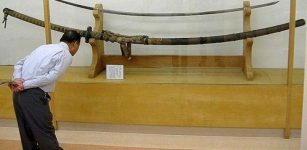 The Norimitsu Odachi – Giant Japanese Sword Remains An Enigma
Artifacts | Mar 22, 2019
The Norimitsu Odachi – Giant Japanese Sword Remains An Enigma
Artifacts | Mar 22, 2019 -
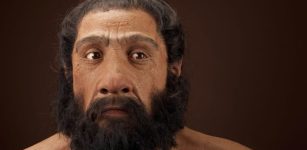 Study Of Ancient Skulls Sheds Light On Human Interbreeding With Neandertals
Archaeology | Aug 23, 2022
Study Of Ancient Skulls Sheds Light On Human Interbreeding With Neandertals
Archaeology | Aug 23, 2022 -
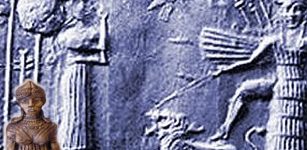 Ereshkigal – Ruler Of The Sumerian Underworld And Most Feared Deity In Mesopotamian Pantheon
Featured Stories | Mar 16, 2017
Ereshkigal – Ruler Of The Sumerian Underworld And Most Feared Deity In Mesopotamian Pantheon
Featured Stories | Mar 16, 2017 -
 Ice Age Engraved Stones, Tools Unearthed At Jersey Hunter-Gatherer Site Dated To Magdalenian Culture
Archaeology | Nov 3, 2015
Ice Age Engraved Stones, Tools Unearthed At Jersey Hunter-Gatherer Site Dated To Magdalenian Culture
Archaeology | Nov 3, 2015 -
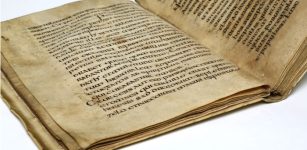 Secretly Engraved Woman Name Discovered In Medieval Manuscript – Who Was Eadburg?
Archaeology | Dec 3, 2022
Secretly Engraved Woman Name Discovered In Medieval Manuscript – Who Was Eadburg?
Archaeology | Dec 3, 2022 -
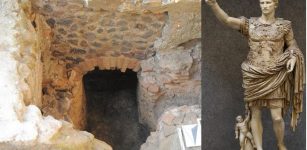 Lost Villa Of First Roman Emperor Augustus Found At Somma Vesuviana In Southern Italy
Archaeology | Apr 19, 2024
Lost Villa Of First Roman Emperor Augustus Found At Somma Vesuviana In Southern Italy
Archaeology | Apr 19, 2024 -
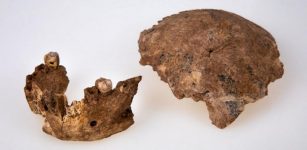 New Type Of Early Previously Unknown Human Discovered In Israel
Archaeology | Jun 29, 2021
New Type Of Early Previously Unknown Human Discovered In Israel
Archaeology | Jun 29, 2021 -
 A Painted Vault Lid Discovered In Royal Palace Of Ek’ Balam Will Shed Light On History Of The Acropolis Of Ek’
Archaeology | Sep 16, 2023
A Painted Vault Lid Discovered In Royal Palace Of Ek’ Balam Will Shed Light On History Of The Acropolis Of Ek’
Archaeology | Sep 16, 2023 -
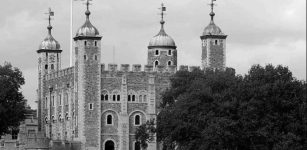 On This Day In History: Simon Fraser – The Last Man In Britain To Be Executed On Tower Green, London – On Apr 9, 1747
News | Apr 9, 2017
On This Day In History: Simon Fraser – The Last Man In Britain To Be Executed On Tower Green, London – On Apr 9, 1747
News | Apr 9, 2017 -
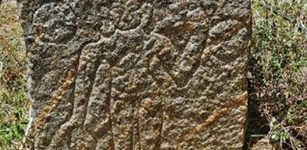 500-Year-Old Vaishnava Saint Sculptures Discovered
Archaeology | Oct 15, 2015
500-Year-Old Vaishnava Saint Sculptures Discovered
Archaeology | Oct 15, 2015 -
 Bees Originated From An Ancient Supercontinent Millions Of Years Earlier Than Previously Thought
Evolution | Jul 31, 2023
Bees Originated From An Ancient Supercontinent Millions Of Years Earlier Than Previously Thought
Evolution | Jul 31, 2023 -
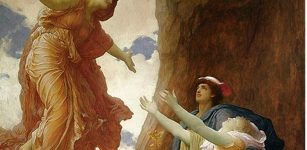 Persephone: Greek Goddess Of The Coming Spring And Lady Of The Land Of The Dead
Featured Stories | Jun 26, 2021
Persephone: Greek Goddess Of The Coming Spring And Lady Of The Land Of The Dead
Featured Stories | Jun 26, 2021 -
 Incredible Padmanabhaswamy Temple And Its Ancient Treasures Hidden In Vaults Guarded By Serpents
Featured Stories | Jun 29, 2015
Incredible Padmanabhaswamy Temple And Its Ancient Treasures Hidden In Vaults Guarded By Serpents
Featured Stories | Jun 29, 2015 -
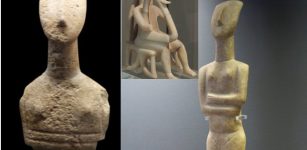 The Cyclades And Their Advanced And Mysterious Society Lost In Time
Featured Stories | Apr 25, 2022
The Cyclades And Their Advanced And Mysterious Society Lost In Time
Featured Stories | Apr 25, 2022 -
 Huge Lost Ancient Underground City Of Samen Finally Reveals Its Secrets
Archaeology | Apr 28, 2017
Huge Lost Ancient Underground City Of Samen Finally Reveals Its Secrets
Archaeology | Apr 28, 2017 -
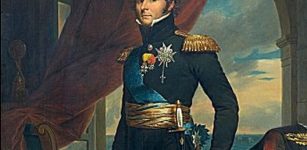 On This Day In History: Sweden Declares War On Its Ally The United Kingdom – On Nov 17, 1810
News | Nov 17, 2016
On This Day In History: Sweden Declares War On Its Ally The United Kingdom – On Nov 17, 1810
News | Nov 17, 2016 -
 Ancient Symbol Hamsa: It’s Meaning And History Explained
Ancient Symbols | May 20, 2020
Ancient Symbol Hamsa: It’s Meaning And History Explained
Ancient Symbols | May 20, 2020 -
 La Garma Cave Offers Evidence Of Over 300,000 Years Of Human Activity
Featured Stories | Dec 5, 2023
La Garma Cave Offers Evidence Of Over 300,000 Years Of Human Activity
Featured Stories | Dec 5, 2023 -
 Ancient Unsolved Mysteries Of Siberia – A Place Full Of Secrets
Featured Stories | May 19, 2014
Ancient Unsolved Mysteries Of Siberia – A Place Full Of Secrets
Featured Stories | May 19, 2014


